
Anand Pandian (he/him/his)
Krieger-Eisenhower Professor
Contact Information
- pandian@jhu.edu
- Curriculum Vitae
- Mergenthaler 454
- Schedule a Meeting
- 410-516-7267
- Personal Website
Research Interests: Ecological ethics; sustainable design; environmental humanities; sensory ethnography; experimental writing; engaged anthropology; participatory teaching and research; India, America, Baltimore, Earth
Anand Pandian is Krieger-Eisenhower Professor of Anthropology at Johns Hopkins University, with a joint appointment in Earth & Planetary Sciences. His books include A Possible Anthropology: Methods for Uneasy Times, and Something Between Us: The Everyday Walls of American Life and How to Take Them Down, now available from Stanford University Press. A former department chair of anthropology, he serves now as President of the Society for Cultural Anthropology. He also serves as a curator of the Ecological Design Collective, a community for radical ecological imagination and collaboration. He lives with his family in Baltimore, where he is currently working on a new book project on decay, waste, and the crafting of ecological futures.
 I’ve spent much of my adult life wrestling, in various ways, with the problem of environmental ethics: the cultivation of ecological sensibility, the pursuit of livable relations with the natural world. Pitfalls abound when it comes to these matters. Words like nature, environment, and ecology are taken too easily to embody a lost (and frankly illusory) harmony with the world beyond our human and modern places. But these very terms can be taken instead as invitations to radicalize the moral imagination, to widen the horizons of social justice, everyday aspiration, and speculative design. For people do owe their potential for change to environmental elements and relations of countless kinds, and the diverse traditions of thought and practice that bring such relationships into focus. The sudden cry of a songbird; an ominous trace in the air; the tugs of craftwork and community: these things of the world, in all their force and frailty, are knotted into the architecture of our minds and bodies. Such convolutions—inside and outside, matter and spirit, human and nonhuman—challenge us to meet an unpredictable world with openness and care. Anthropology can help with this task, for we rely on a method of experience, a continuous deflection of thought through the vicissitudes of earthly life.
I’ve spent much of my adult life wrestling, in various ways, with the problem of environmental ethics: the cultivation of ecological sensibility, the pursuit of livable relations with the natural world. Pitfalls abound when it comes to these matters. Words like nature, environment, and ecology are taken too easily to embody a lost (and frankly illusory) harmony with the world beyond our human and modern places. But these very terms can be taken instead as invitations to radicalize the moral imagination, to widen the horizons of social justice, everyday aspiration, and speculative design. For people do owe their potential for change to environmental elements and relations of countless kinds, and the diverse traditions of thought and practice that bring such relationships into focus. The sudden cry of a songbird; an ominous trace in the air; the tugs of craftwork and community: these things of the world, in all their force and frailty, are knotted into the architecture of our minds and bodies. Such convolutions—inside and outside, matter and spirit, human and nonhuman—challenge us to meet an unpredictable world with openness and care. Anthropology can help with this task, for we rely on a method of experience, a continuous deflection of thought through the vicissitudes of earthly life.
 I owe what I’ve written to the generosity of many others willing to indulge an ethnographer in their midst, in India, the United States, and elsewhere. In a recent book, A Possible Anthropology: Methods for Uneasy Times (2019), I sketch the discipline’s commitment to a humanity yet to come. A book based on years of fieldwork with Tamil filmmakers, artists, musicians, and craftsmen, Reel World: An Anthropology of Creation (2015) grapples with the turbulent ecology of creative process. Ayya's Accounts: A Ledger of Hope in Modern India (2014; also in Tamil) takes my grandfather's life in Burma and India as an aperture for a century of tremendous aspiration and upheaval. Crooked Stalks: Cultivating Virtue in South India (2009) explores postcolonial landscapes, and the ethical lives of those who tend them, as fields of moral and agrarian cultivation. One new book project examines indifference in contemporary American life, the everyday arrangements that allow cruelty to harbor in the most banal of circumstances. Another new project focuses on decay as the underside of growth, the challenge of living with the reality of impermanence. I see these books as chapters in an ongoing anthropology of the open mind, a mind open to the difference and uncertainty of a wider world, committed to the significance of transformative encounters and relations. Openness of mind, I’ve come to believe, is a necessary foundation for environmental ethics, a critical resource for the ecological trials of our time.
I owe what I’ve written to the generosity of many others willing to indulge an ethnographer in their midst, in India, the United States, and elsewhere. In a recent book, A Possible Anthropology: Methods for Uneasy Times (2019), I sketch the discipline’s commitment to a humanity yet to come. A book based on years of fieldwork with Tamil filmmakers, artists, musicians, and craftsmen, Reel World: An Anthropology of Creation (2015) grapples with the turbulent ecology of creative process. Ayya's Accounts: A Ledger of Hope in Modern India (2014; also in Tamil) takes my grandfather's life in Burma and India as an aperture for a century of tremendous aspiration and upheaval. Crooked Stalks: Cultivating Virtue in South India (2009) explores postcolonial landscapes, and the ethical lives of those who tend them, as fields of moral and agrarian cultivation. One new book project examines indifference in contemporary American life, the everyday arrangements that allow cruelty to harbor in the most banal of circumstances. Another new project focuses on decay as the underside of growth, the challenge of living with the reality of impermanence. I see these books as chapters in an ongoing anthropology of the open mind, a mind open to the difference and uncertainty of a wider world, committed to the significance of transformative encounters and relations. Openness of mind, I’ve come to believe, is a necessary foundation for environmental ethics, a critical resource for the ecological trials of our time.
 Claude Levi-Strauss says that structuralism first struck him one afternoon in 1940, as he contemplated the seedheads of a dandelion. There's no better image for the wildly participatory nature of anthropology, which seems always to drift from place to place with stowaway friends and ideas. I serve as a curator of the newly-established Ecological Design Collective, which brings researchers, designers, activists, and artists together for collaborative projects in ecological imagination and transformation. Cymene Howe and I co-edited Anthropocene Unseen: A Lexicon, an open-access collection published in 2020 by Punctum Books. In 2017, Duke University Press published Crumpled Paper Boat, a book of ventures in experimental ethnographic writing, based on a workshop that I organized with Stuart McLean at the School of American Research. I worked closely with Tamil film director M. Sasikumar to publish an English translation of his pathbreaking screenplay Subramaniyapuram in 2014, accompanied by a series of critical essays. I co-edited Ethical Life in South Asia (2010) with medieval historian Daud Ali, and Race, Nature, and the Politics of Difference (2003) with Donald Moore and Jake Kosek. For the Society for Cultural Anthropology in 2018, I organized one of the first international virtual conferences in anthropology, called Displacements, and I serve SCA now as President.
Claude Levi-Strauss says that structuralism first struck him one afternoon in 1940, as he contemplated the seedheads of a dandelion. There's no better image for the wildly participatory nature of anthropology, which seems always to drift from place to place with stowaway friends and ideas. I serve as a curator of the newly-established Ecological Design Collective, which brings researchers, designers, activists, and artists together for collaborative projects in ecological imagination and transformation. Cymene Howe and I co-edited Anthropocene Unseen: A Lexicon, an open-access collection published in 2020 by Punctum Books. In 2017, Duke University Press published Crumpled Paper Boat, a book of ventures in experimental ethnographic writing, based on a workshop that I organized with Stuart McLean at the School of American Research. I worked closely with Tamil film director M. Sasikumar to publish an English translation of his pathbreaking screenplay Subramaniyapuram in 2014, accompanied by a series of critical essays. I co-edited Ethical Life in South Asia (2010) with medieval historian Daud Ali, and Race, Nature, and the Politics of Difference (2003) with Donald Moore and Jake Kosek. For the Society for Cultural Anthropology in 2018, I organized one of the first international virtual conferences in anthropology, called Displacements, and I serve SCA now as President.
Research and writing depend on networks of collaboration and an ecology of support. I serve at present on the editorial boards of the journals American Anthropologist and the Journal of the Royal Anthropological Institute; on the editorial advisory boards of the open-access publisher Punctum Books and the creative ethnographic writing outlet Otherwise Magazine; and on the governing board of the Society for Cultural Anthropology. I’m grateful to the following institutions for their generosity and support of my work.
- Project Grant, Chesapeake Bay Trust
- Workshop Grant, Wenner-Gren Foundation for Anthropological Research, 2021
- PhD Professional Development Innovation Grant, JHU Office of the Provost, 2020
- Infosys Prize in the Social Sciences, Infosys Science Foundation, 2019
- Engaged Scholar Faculty Fellowship, JHU Center for Social Concern, 2019
- Global Initiatives Grant, Wenner-Gren Foundation for Anthropological Research, 2018
- Second Prize, Victor Turner Prize in Ethnographic Writing, Society for Humanistic Anthropology, 2017
- Johns Hopkins Catalyst Award, JHU Office of the Provost, 2016
- Exploration of Practical Ethics Award, JHU Berman Institute of Bioethics, 2016
- Second Prize, Victor Turner Prize in Ethnographic Writing, Society for Humanistic Anthropology, 2014
- Seed Grant, JHU Environment, Energy, Sustainability and Health Institute, 2014
- Advanced Seminar in "Literary Anthropology," School for Advanced Research, Santa Fe, 2013
- Engaged Anthropology Grant, Wenner-Gren Foundation for Anthropological Research, 2012
- Stirling Prize, Society for Psychological Anthropology, 2011
- Senior Research Grant, Cultural Anthropology Program, National Science Foundation, 2009
- Post-PhD Research Grant, Wenner-Gren Foundation for Anthropological Research, 2009
- Senior Long Term Research Fellowship, American Institute of Indian Studies, 2009
- Exploratory Workshop on "Genealogies of Virtue," Peter Wall Institute for Advanced Studies, University of British Columbia, 2007
- Hampton Fund Research Grant, University of British Columbia, 2006
- Townsend Fellowship, Townsend Center for the Humanities, UC Berkeley, 2003
- Simpson Memorial Research Fellowship, Institute of International Studies, UC Berkeley, 2003
- Graduate Research Fellowship, National Science Foundation, 1997
- Truman Scholarship for Public Service, Truman Scholarship Foundation, 1993
A Note for Prospective Students and Advisees
Anthropology is a way of being in the world as much as an academic discipline. We learn what we can in field environments far beyond our control. We strive to cultivate ethical and responsive relationships with others who often have far more of a right to such spaces than we do. We have to make our peace somehow with the the unknown, with truths and realities that may constantly elude our grasp. Patience and curiosity can help with this challenge. What Rilke wrote of loving questions and even living out those questions, rather than always striving for answers, feels to me like a spirit essential to any apprenticeship in anthropology.
In working with students, I try to find places where our respective senses of curiosity may converge. I take mentoring and advisory relationships as occasions for collaborative inquiry and exploratory problem-solving, chances to think and learn together in an open and speculative manner, and to attend with care to practical necessities and constraints. Having said this, it's also important to stress that in a department as small and interactive as ours, graduate students are mentored collectively, by multiple faculty and in the company of their peers in the program. A robust education depends on manifold relationships, especially in anthropology.
If you're thinking about studying in our program, please spend some time reading and absorbing the range of what faculty and students in our department have been doing. It's less about whether any particular faculty member may be accepting advisees in a given graduate admissions cycle, and more about finding a place in a broader collective ecosystem of research and practice. Best wishes with your plans and the road ahead.
For more details on how I approach the specifics of student advising (communications, feedback, meetings, deadlines, and outcomes) please see this Protocol for Supporting Student Work: Student Support Protocol.docx
Course Descriptions
Repair (Spring 2025)
Take a moment to reflect on the present and future, and it is difficult to escape a sense of things breaking down in a fundamental way. But cycles of breakdown and repair are an ecological reality. And human communities, especially those marginalized and exploited by prevailing social and political structures, have long pursued repair and reparation as matters of both survival and justice. This course thinks through ideas of repair as means of engaging with contemporary social and ecological impasses in a spirit of restitution. Drawing from environmental anthropology, materialist philosophy, and abolitionist thought, we will work to chart the ethical and strategic promise of repair as a mode of engagement with toxic and unlivable circumstances, working through themes of loss, maintenance, and justice. We will also work in the manner of a collective studio, each of us pursuing and charting specific practices of repair.
The Future of Here (with Jordan Tierney, Fall 2024)
This class is an occasion for speculative anthropology, a chance to reimagine this place (an American city on the Jones Falls river) in a future beyond the bustle of our fossil-fueled present. What culture might people of that distant time produce, and how might they make creative use of the many things we leave behind? In this class, we will work together as anthropologists and artists of another time, crafting an inventive and collaborative story about a culture to come, and the material artifacts of a very different collective life. The class will be co-taught by anthropologist Anand Pandian and visual artist Jordan Tierney. We will nurture our imaginations through experiential practices of observing nature, collecting materials, and assembling artifacts. What we build will serve as the core of a winter 2025 exhibition at the Peale Museum we will develop together.
Pollution (Spring 2023)
In this course, we will grapple with pollution as an existential predicament, a permissible effect, and an organizing problem. We will read ethnographic engagements with waste and waste infrastructure, industrial and chemical toxicity, fossil fuel production, environmental justice, and environmental health. We will consider pollution’s debt to capitalism and colonialism, and relations between environmental and moral pollution. Working in the manner of both a seminar and a collaborative workshop, we will seek to bring into focus the questions and lessons that arise from readings of diverse places and our own emergent field projects.
Environmental Justice Workshop (with Shashawnda Campbell, Fall 2022 and Spring 2023)
This year-long course will create a space for graduate and undergraduate students of diverse backgrounds to join in the collective struggle to build equitable and sustainable urban futures in Baltimore. The course is co-taught by community organizer Shashawnda Campbell of the South Baltimore Community Land Trust and anthropologist Anand Pandian of Johns Hopkins University. Students will gain first-hand exposure to environmental conditions, community needs, and organizing work in south Baltimore, contributing to ongoing collaborative efforts to make community-led development and sustainable urban design a more tangible possibility in the city. Working week-by-week over the academic year from a local base in Curtis Bay, we will pay particular attention to histories of pollution, waste, and neglect, their complex reverberations in the present, and the difficult work of building alternatives and making new histories.
Methods (Fall 2022)
“It was only when I abandoned looking for what I understood,” anthropologist Lawrence Cohen writes in No Aging in India, “that I began to find it.” This seminar offers a forum to grapple with the enigma of method in anthropology. We will proceed in the manner of a workshop for incipient projects: reflecting on summer fieldwork, engaging in regular exercises, and pursuing focused reading on relevant themes. Our itinerary will develop collaboratively and iteratively, week by week, in resonance with the emerging needs of student research projects: both specific questions of practice (e.g. interviews) and the forms of reflection they invite (e.g. relationships). The Fall 2022 Methods Workshop will serve as one waystation for our efforts, an occasion to pose individual research problems on a preliminary basis for discussion with department faculty and students. Students will also work toward drafting a conjectural “methods” section for a possible research proposal. We will aim to proceed throughout the semester in a spirit of active listening, generous response, and patience with all that remains stubborn and unfinished.
Public Anthropology (Spring 2022)
Recent years have seen a renewed commitment to public work in anthropology, in terms of writing, presentation, and activist engagement. This course will focus on recent ethnographic work in a public vein, examining questions of medium, voice, and responsibility, as well as contexts of circulation and reception. Operating in the style of both a seminar and a collaborative writing workshop, we will explore in practical terms what it means to pursue anthropology with a broader public in mind.
Ethnographies (Fall 2021)
This seminar explores ethnography as a craft essential to anthropology. Ethnography is one of the most important ways in which we bring the experience of others into focus. The very notion of ethnography evokes the fieldwork that anthropology is known for, and also the bringing of a world to life through the making of a text. In this seminar, we will closely read a handful of contemporary ethnographic works, and pursue experiments of our own in ethnographic description. This course aims to introduce students to this mode of research and expression fundamental to anthropology, by learning together how to evaluate ethnographic texts and their intertwining of description and argumentation. We will also develop a practical understanding of ethnographic method through different exercises in observation and writing, trying out various ways of describing scenes, characters, problems, and situations. We will approach ethnography as a creative practice, revealing unknown depths and faces of the realities we confront in the world at hand, yielding new ways of understanding contemporary social and cultural concerns.
Design Anthropology (with Mike Degani, Spring 2020)
From casinos to canoes, algorithms to animal traps, our worlds are bursting with designed
objects, processes, and situations. The word design has come to evoke the prestige of such things, and their power to shape our collective habits and sensations. This course explores the anthropology of designed artifacts and their complex social trajectories. Beginning with philosophical investigations into the relationship between materials, form, and craft, we will proceed through ethnographic case studies of design as expert discourse and ordinary practice. Ultimately we will consider the affinities between ethnography and design as open-ended and not entirely predictable engagements with the world. What do we learn by approaching design and design processes from an ethnographic standpoint? And could we think of design as another way of doing anthropology?
Invitation to Anthropology (Fall 2020)
These are difficult times for people here and around the world, highly unsettling, with occasional glimmers of a life beyond these trials. This course introduces anthropology as a way to reflect on the challenges of contemporary existence. We will examine key anthropological methods like fieldwork and storytelling, juxtaposing texts and concepts with short ethnographic films and other media. Our texts explore topics like the politics of food access in Washington DC and the place of animals in the everyday life of rural India. With an eye to social and racial justice, we focus on stories written and told by people of color, and both the struggles and critical vision of marginalized communities.
Sustainable Design Seminar (Fall 2020)
Sustainable design involves the development of socially engaging and ecologically sensitive interventions and alternatives, a task both social and technical in nature. With interdisciplinary readings, lectures, and workshops in social science, environmental engineering, and planning and design, this seminar focuses on both theoretical and practical dimensions of this challenge. This seminar is the first of a two-semester practicum in sustainable design, oriented to developing practice-based collaborations with two community environmental organizations in Baltimore.
Social Ecology (Fall 2019)
This course explores the social and cultural dimensions of the contemporary ecological crisis. We do so from the perspective of a small place on earth – the riparian landscape of the Wyman Park that adjoins our Homewood campus – and in partnership with the community organization that stewards this environment, Friends of Stony Run (stonyrun.org). As an effort in community-based learning, our work in the course will be guided by this partnership, and the practical needs of our collaborators. We aim to understand better what draws some people to this wilder tract, what keeps others away, and what this implies about human-environment relations in the city. We also attend to relationships between the Homewood community and the forest on its edge.
The Idea of America (Spring 2019)
America is an idea as much as a country, a place made and remade by the claims we make and the stories we tell. In this course, we draw on anthropological works, historical texts, poetry and fiction, and elements of popular culture to grapple with prevailing ideas of America, and what else this place might mean to its inhabitants and others. We will follow the foundational themes of freedom, landscape, migration, and belonging, and we will explore, through social media, how such ideas circulate in contemporary American life. We’ll take the classroom itself as a space for civic participation.
Vulnerability (Fall 2018)
Many in the contemporary world live in states of acute vulnerability. In another way, vulnerability may be taken as a fundamental aspect of physical and social life; the word itself derives from the Latin vulnus, wound, and therefore marks a susceptibility to wounding. In this course, we will consider vulnerability in situations like forced displacement, experience of poverty and injury, environmental devastation, and the politics of social protest. Thinking with ethnography, feminist and antiracist philosophy, and many creative works, we will explore vulnerability as a condition to live with rather than one to overcome at any cost.
Influx/Efflux (with Jane Bennett, Spring 2018)
Drawing on political philosophy, ethnography, poetry, and fiction, this course will explore ways of rethinking the “I” of agency and experience beyond the limits of a bounded human subject, in relation to the vicissitudes of atmosphere, the experience of affect and influence, the multiplicity of the body and the processual flow (influx-and-efflux) of things.
Speculative Anthropology (Fall 2016)
Anthropology has always been a speculative enterprise, an attempt to think beyond some familiar idea of the human. We explore this speculative dimension by looking at intersections between anthropology and environmental politics, contemporary art, science fiction, and philosophy. Working with texts, media, and our own experimental ventures, we will examine the creative and imaginative nature of anthropology.
Logic of Anthropological Inquiry (Spring 2016)
Anthropology is an endeavor to think with the empirical richness of the world at hand, a field science with both literary and philosophical pretensions. This course examines the nature of anthropological inquiry, reading classic works in the discipline as well as contemporary efforts to reimagine its foundations. Our aim is to grasp what it might mean that “we do our philosophy out of doors,” as Tim Ingold has put it. We focus most closely on four influential figures from different eras and genres of anthropology: Bronislaw Malinowski, Zora Neale Hurston, Claude Lévi-Strauss, and Michael Jackson. In each case, we tack between their scholarly writings and other kinds of materials such as biography and memoir, seeking to grasp the relationship between thinking and living in anthropology.
Plastic (Fall 2015)
“Plastic … is in essence the stuff of alchemy,” the French literary critic Roland Barthes famously wrote in 1957—“more than a substance, plastic is the very idea of its infinite transformation.” The synthetic inventions of the 20th century that we call “plastic” are now ubiquitous on Earth, from the heart of modern cities to the most distant oceans. The word plastic refers, etymologically, to that which can be formed or molded. This idea of transformation concerns not only these material artifacts, bags and bottles and so on, but also the human beings that they have been formed and molded for—their promise of radically remaking our lives as well. In this course, we will think between plastic things and the plasticity or malleability of human nature. We will work with writings in history, anthropology, fiction, poetry, and philosophy; films, comic books, activist and art works; and our own experience with plastic artifacts of various kinds. Our goal is to think through the deep intertwining of hopeful dreams and fearsome nightmares that shape the experience of plastic in modern times.
Ecological Anthropology (Spring 2015)
This course explores questions of nature, ecology and environment from an anthropological perspective, drawing on case studies from around the globe. Topics include the urban ecology of cities such as New York and Baltimore, indigenous livelihoods in Siberia and South America, nuclear and environmental politics in the United States, and relations between human beings and diverse non-human organisms.
The Comparative Tradition in Anthropology (Spring 2015)
Anthropology is often imagined as the study of a particular place and people. But comparative methods date back to the beginnings of the discipline, efforts that are echoed in recent works of global and ambitious scope. In this seminar, we examine the theory and practice of comparison in anthropology, looking at the historical development of comparative methods, as well as contemporary attempts at comparative understanding. We will seek ways of making comparisons that don’t clamp down on the essential nature of the entities being compared, and that don’t insist upon a necessary gulf between them. In so doing, we will reflect critically upon the relationship between universal ideas and particular circumstances in anthropology.
Cinema and Ethnography (Spring 2014)
A stroll down the street, words with a lover, the sound of a sudden explosion: over the last century, films have changed the very way that we imagine ourselves, relate to each other, inhabit the world around us. Everything feels, so often, like it already happened in a scene from some film whose name you can’t quite remember. This phenomenon, so widespread in the contemporary world, is one of particular interest to anthropologists, who devote themselves to a careful examination of ordinary, sensory, and intimate life. In this course, we move back and forth between cinematic and ethnographic evocations of experience. We will pay close attention to the narratives and characters that animate ethnographic films, and the visual and sensory qualities that enliven ethnographic writing. Our goal, in thinking and working between these two media, is to develop a sense of the techniques that compose their experiential worlds.
Ethnographic Writing (Spring 2012)
In this seminar, we will closely examine a few works of anthropological writing, and pursue experiments of our own in ethnographic description and expression. Working collaboratively in the spirit of a workshop, we will do exercises in reading and writing, trying out various ways of describing ethnographic scenes, characters, problems, and situations. We will explore ethnographic writing as a creative practice committed to excavating unknown depths and faces of the reality we see, feel, and experience.
Encountering Experience (Fall 2011)
One among anthropology’s many peculiarities is its commitment to experience as a matter of method: how could something as elusive and capricious as experience of another living world yield concepts of enduring significance and value? Reading in this seminar between anthropology and philosophy, we will examine experience as concept, object, and mode of anthropological inquiry.
Anthropology of Media (Fall 2011)
Life throughout much of the globe today is saturated by various kinds of media: films, television, newspapers, magazines, radio, cell phones, iPods, advertisements, photos, websites, fantasy games, medical images of the body, and so on. This course will examine this profound mediation of contemporary life from an anthropological standpoint, focusing on the social worlds fashioned and inhabited through the production, circulation, and consumption of media artifacts. Drawing on case studies from around the world, and engaging as well in the production of our own, we will explore some of the politics of media representation; how visual media reconfigure modern experiences of the body; and the social and virtual worlds fashioned by diverse contemporary media.
Anthropology and Fiction (Spring 2011)
Encounters are essential to anthropology: encounters with others, with experience, with life, with difference, with the unknown. Although such encounters are typically imagined to take place through anthropological fieldwork, we focus in this course on encounters made by reading and writing anthropological literature. Anthropological works have focused more closely in recent years on qualities like affect, memory, imagination, desire, and impulse. So many of these works, however, have themselves been sensuous, impassioned, dreamlike, or fantastical in their written form. We will explore what is at stake in such forms of literary expression in contemporary anthropology. Looking at fiction, poetry, memoir, film, and other experimental ethnographic forms, we will consider anthropological writing as a creative practice of provoking altered states of feeling.
Philosophical Anthropology (Fall 2010)
Working along four distinct axes of philosophical thought and anthropological investigation – the human and non-human, culture and history, space and time, and mind and matter – we will examine the relationship between conceptual and empirical work in classical and contemporary anthropology. The first three sections of the course begin with Enlightenment philosophies crucial for the development of modern social and cultural anthropology, tracking subsequent inheritances and transmutations of their conceptual positions; the final section instead explores a movement of thought from anthropology to philosophy and back again. Throughout the semester, we will be concerned with how concepts arise in, and circulate through, the exercise of anthropology: what is it to think – critically, imaginatively, comparatively, minutely – about human being and becoming?
Creative Expression (Spring 2010)
This course seeks anthropological ground for an impersonal and asubjective philosophy of creative expression, that is, for a way of grappling with the emergence of newness – in both conceptual and empirical terms – without falling back upon the subjective intentions of its authors or makers. Our path throughout the semester tacks back and forth between philosophical and anthropological engagements with a series of related problems. On the one hand, we trace a lineage of thought – Spinoza, Nietzsche, Bergson, Whitehead, Merleau-Ponty, Deleuze – that finds creative invention always at work in a world of ceaseless becoming. On the other hand, we examine the expressive activities of “artists” – broadly conceived – in a variety of milieus, confronting their working intuitions with the unpredictable lifeworlds they engage.
Essays
- "Eaten Away by Ants," MOLD Magazine, February 19, 2025
- "The Fight Against Incineration is a Chance to Right Historic Wrongs," with Chloe Ahmann, Baltimore Beat, June 26, 2024
- "Planting Seeds for a More Ethical Future," with Eric Jackson and Nicole Labruto, Sapiens, January 24, 2023
- "Butterfly Crossings: Traversing Boundaries of Space and Species in North America," Environmental Humanities, 2022
- "Look around you. The way we live explains why we are increasingly polarized." The Guardian, January 16, 2022
- "What I learned From an Unlikely Friendship with an Anti-Masker," The Guardian, August 19, 2021
- "Leverkusen," Otherwise Magazine, May 26, 2021
- "Shelbyville, 2017," Fieldsights," Society for Cultural Anthropology, April 15, 2021
- “A Stranger to the Weave,” Fieldsights, Society for Cultural Anthropology, October 30, 2020
- "The Casual Menace of a Trump Rally," Sapiens, October 27, 2020
- "Anthropology in Times of Radical Unease," Fieldsights, Society for Cultural Anthropology, 2020
- "Staying at Home on Planet Earth," The Hindu, April 14, 2020
- "Redesigning the Annual Conference: Contagion, Carbon, Access, Equity," Fieldsights, Society for Cultural Anthropology, 2020
- "In the Library of Levi-Strauss," Public Books, 2020
- "Reflections on #displace18," Fieldsights, Society for Cultural Anthropology, 2018
- "Open Access, Open Minds," Fieldsights, Society for Cultural Anthropology, 2018
- "Becoming Here," Fieldsights, Society for Cultural Anthropology, 2018
- "Ursula K. LeGuin, Interplanetary Anthropologist," Anthrodendum, 2018
- "Waiting," Anthropology & Humanism, 2017
- "Prologue," Crumpled Paper Boat, with Stuart McLean, 2017
- "On the Creative Ecology of Words," Journal of the Royal Anthropological Institute, 2016
- "Plastic," Fieldsights, Society for Cultural Anthropology, 2016
- "For a Creative Anthropology," Somatosphere, 2015
- "Seeing Things," Public Books, 2015
- "The Ecology of What We Write," Savage Minds, 2015
- "Plastic Earth, the Movie," Society for Cultural Anthropology, 2014
- "Thinking Like a Mountain," Hau: Journal of Ethnographic Theory, 2014
- "In the Event of an Anthropological Thought," in Wording the World: Veena Das and Scenes of Inheritance, 2014
- "Architects of a Cinematic World," in Subramaniyapuram: The Tamil Film in English Translation, 2014
- "In the Light of Experience: An Indian Cameraman," Bioscope, 2013
- "The Time of Anthropology: Notes from a Field of Contemporary Experience," Cultural Anthropology, 2012
- "Imagination: Cinematic, Anthropological," Social Text, 2012
- "Landscapes of Expression: Affective Encounters in South Indian Cinema," Cinema Journal, 2011
- "Anthropology and the Image of the World," Suomen Antropologi: Journal of the Finnish Anthropological Society, 2011
- "Reel Time: Ethnography and the Historical Ontology of the Cinematic Image," Screen, 2011
- "Ripening with the Earth: On Maturity and Modernity in South India," in Handbook of Modernity in South Asia, 2011
- "Interior Horizons: An Ethical Space of Selfhood in South India," Journal of the Royal Anthropological Institute, 2010
- "The Remembering Village: Looking Back on Louis Dumont from Rural Tamil Nadu," Contributions to Indian Sociology, 2009
- "Genealogies de la vertu. Pratiques ethiques in Asie du Sud," with Daud Ali, Anthropologie et Societes, 2009
- "Tradition in Fragments: Inherited Forms and Fractures in the Ethics of South India," American Ethnologist, 2008
- "Devoted to Development: Moral Progress, Ethical Work, and Divine Favor in South India," Anthropological Theory, 2008
- "Pastoral Power in the Postcolony: On the Biopolitics of the Criminal Animal in South India," Cultural Anthropology, 2008
- "Cinema in the Countryside: Popular Tamil Film and the Remaking of Rural Life," in Tamil Cinema: The Cultural Politics of India's Other Film Industry, 2007
- "Culture, Cultivation, and Civility in the Tamil Country," in History and Imagination: Tamil Culture in the Global Context, 2007
- "Securing the Rural Citizen: The Anti-Kallar Movement of 1896," Indian Economic and Social History Review, 2005
- "An Ode to an Engineer," in Waterlines: The Penguin Anthology of River Writings, 2003
- "Predatory Care: The Imperial Hunt in Mughal and British India," Journal of Historical Sociology, 2001

Something Between Us: The Everyday Walls of American Life, and How to Take Them Down
author
Stanford University Press ,
2025

Anthropocene Unseen: A Lexicon
co-editor
Punctum Books ,
2020

A Possible Anthropology
author
Duke University Press ,
2019

Crumpled Paper Boat
co-editor
Duke University Press ,
2017

Reel World: An Anthropology of Creation
author
Duke University Press Books ,
2015

Ayya’s Accounts
co-author
Indiana University Press ,
2014

Subramaniyapuram: The Tamil Film in English Translation
editor
Blaft Publications ,
2014

Mitcham Meethi: Oru Anubava Kanakku
co-author
Kalachuvadu Publications ,
2012

Ethical Life in South Asia
co-editor
Indiana University Press ,
2010

Crooked Stalks: Cultivating Virtue in South India
author
Duke University Press Books ,
2009

Race, Nature, and the Politics of Difference
co-editor
Duke University Press Books ,
2003
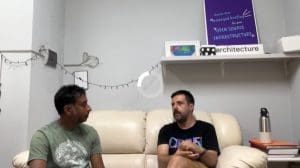
“Open Source Tools for Online Organizing,” Ecological Design Collective, 2023
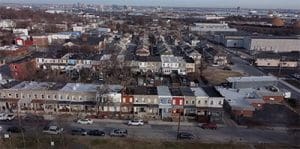
Pollution is No Accident in Curtis Bay (2023)
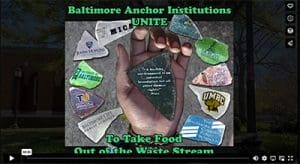
Working for a zero waste Baltimore (2022)
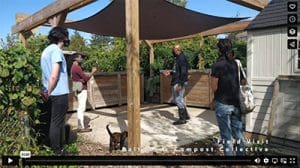
2020-21 Sustainable Design Practicum (2021)
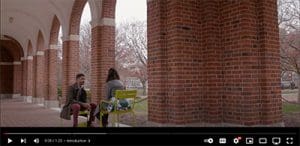
Anthropology helps to understand human life better (2020)
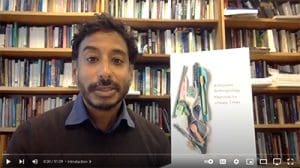
A book talk on A Possible Anthropology (2020)
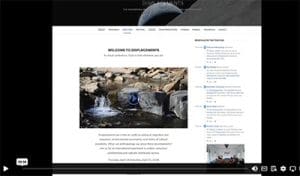
Lessons of #displace18 (2019)

In the library of Lévi-Strauss (2018)
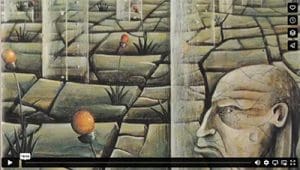
Ursula K. Le Guin, interplanetary anthropologist (2018)
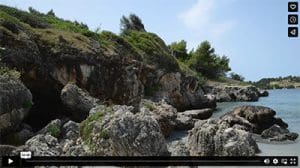
Seaside lament (2018)
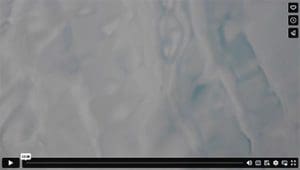
Liquid cinema (2018)
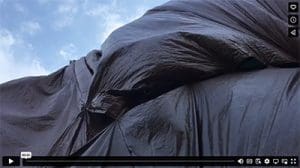
Wine dark plastic sea (2016)
- Bluesky: @anandian.bsky.social
- Posts for the Ecological Design Collective
- Join the EDC Book Club
- Join the EDC Eco Anthropologists Group
- Instagram: @alainthavan
- X: @anandspandia
Audio
- “Deep Dive with Anand Pandian,” Vir Vulnerabilis Vir Podcast, 2022
- “A Possible Anthropology,” Talking Culture Podcast, 2021
- “What Happens When Academics Fly Less to Conferences?” WHYY The Pulse, 2020
- “Podcast: A Possible Anthropology with Anand Pandian,” Allegra Lab, 2020
- “Five Objects Podcast,” The Polis Project, 2020
- “Why is American Burning?” SBS Tamil Radio, 2020
- “Prof. Anand Pandian & Prof. Kaushik Basu,” Research Matters Podcast, 2020
- Conversations in Anthropology podcast, 2019
- Displacements Recap, Cultures of Energy Podcast, 2018
- Podcast on Reel World, New Books Network, 2016
- “How one man’s story reflects the story of India in the 20th century,” WYPR Maryland Morning, 2014
- “A century of history in the life of an ordinary Indian,” NPR Weekend Edition, 2014
- “Anand Pandian discusses Ayya’s Accounts,” Indiana University Press, 2014
Video
- “On Possibility, with Ethnographic Imagination Basel,” 2023
- “Working for a Zero Waste Baltimore,” 2022
- “2020-21 Sustainable Design Practicum“
- “Staying at home on planet earth & pandemic polarizations,” Coronavirus Multispecies Reading Group, 2022
- “Anand Pandian on Home and Belonging in a Global Context,” Housing First Europe, 2021
- “In Conversation with Carole McGranahan, on Writing Anthropology,” Duke University Press, 2020
- “The Open Mind: An Anthropological Inquiry,” Infosys Science Foundation, 2020
- “I became an anthropologist to better understand human motivation,” Infosys Science Foundation, 2020
- “A Book Talk with Anand Pandian for A Possible Anthropology,” Duke University Press, 2019
- “Reimagining the Annual Meeting for an Era of Radical Climate Change,” Fieldsights, Society for Cultural Anthropology, 2019
- “Ayya’s Accounts: A Ledger of Hope in Modern India,” Center for South Asia Studies, UC Berkeley, 2015
- “Where Do We Go From Here? Transforming Detritus into Works of Art,” BmoreArt Magazine, 2023
- “Students support environmental justice efforts in south Baltimore,” JHU Hub, 2023
- “Development without Displacement: The Fall 2022 Practicum,” Ecological Design Collective, 2022
- “Ethnographic Fictions: Talking with Megha Majumdar,” Public Books, 2021
- “A Conversation with Anand Pandian ’04,” Berkeley Anthropology Newsletter, February 2021
- “Contrapuntal Storytelling: If Not Growth, Then What?” CTM Magazine, January 2021
- “Imaginative Ecologies and the Possibilities of Anthropology,” Ekrits, More-Than-Human Environmental Humanities Series, 2020
- “Book Forum: A Possible Anthropology,” Fieldsights, Society for Cultural Anthropology, 2020
- “Talking with Anand Pandian,” Johns Hopkins Magazine, Winter 2019
- “Virtual Meeting of the Minds: Hopkins Helps Facilitate an Unconventional Academic Conference,” The Hub, 2018
- “An Experiment in Carbon Conscious Conferencing and Radical Access,” Allegra Lab, 2018
- “Teaching with Hope: Anand Pandian on Cultivating Possibility in the Classroom,” Fieldsights, Society for Cultural Anthropology, June 2017
- “Cinema and Life Interpenetrated: A Conversation with Anand Pandian,” Confessions of an Aca-Fan, November 2016, Part One and Part Two
- “A Letter to the Man Who Jabbed My Son In Baltimore,” Baltimore Sun, November 30, 2016
- “An Opening to Imagine the Present: A Conversation with Cymene How and Anand Pandian,” Bad at Sports: Contemporary Art Talk, 2016
- “On the Creative Ecology of Words,” Journal of the Royal Anthropological Institute, 2016
- “There is a lot of power in Tamil cinema because of its closeness to everyday life,” Economic Times, 2016
- “Book Forum-Anand Pandian’s Reel World,” Somatosphere, 2015
- “JHU anthropologist talks about the intersection of film, creativity, and experience,” The Hub, 2015
- “India’s evolution, through Ayya’s eyes,” Baltimore Sun, 2014
- “The most ordinary life bears extraordinary stories,” India Abroad, 2014
- “Anthropologist Anand Pandian goes behind the scenes of Tamil filmmaking,” Johns Hopkins Magazine, 2013
- “The Time of Anthropology,” Cultural Anthropology, 2012
- “Complexities of human nature unveiled,” The Hindu, 2012